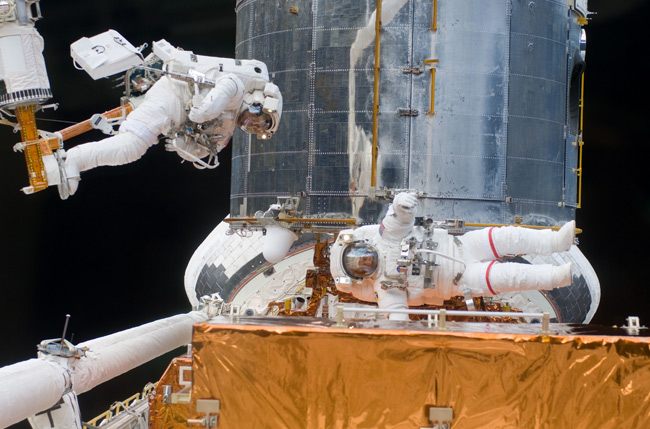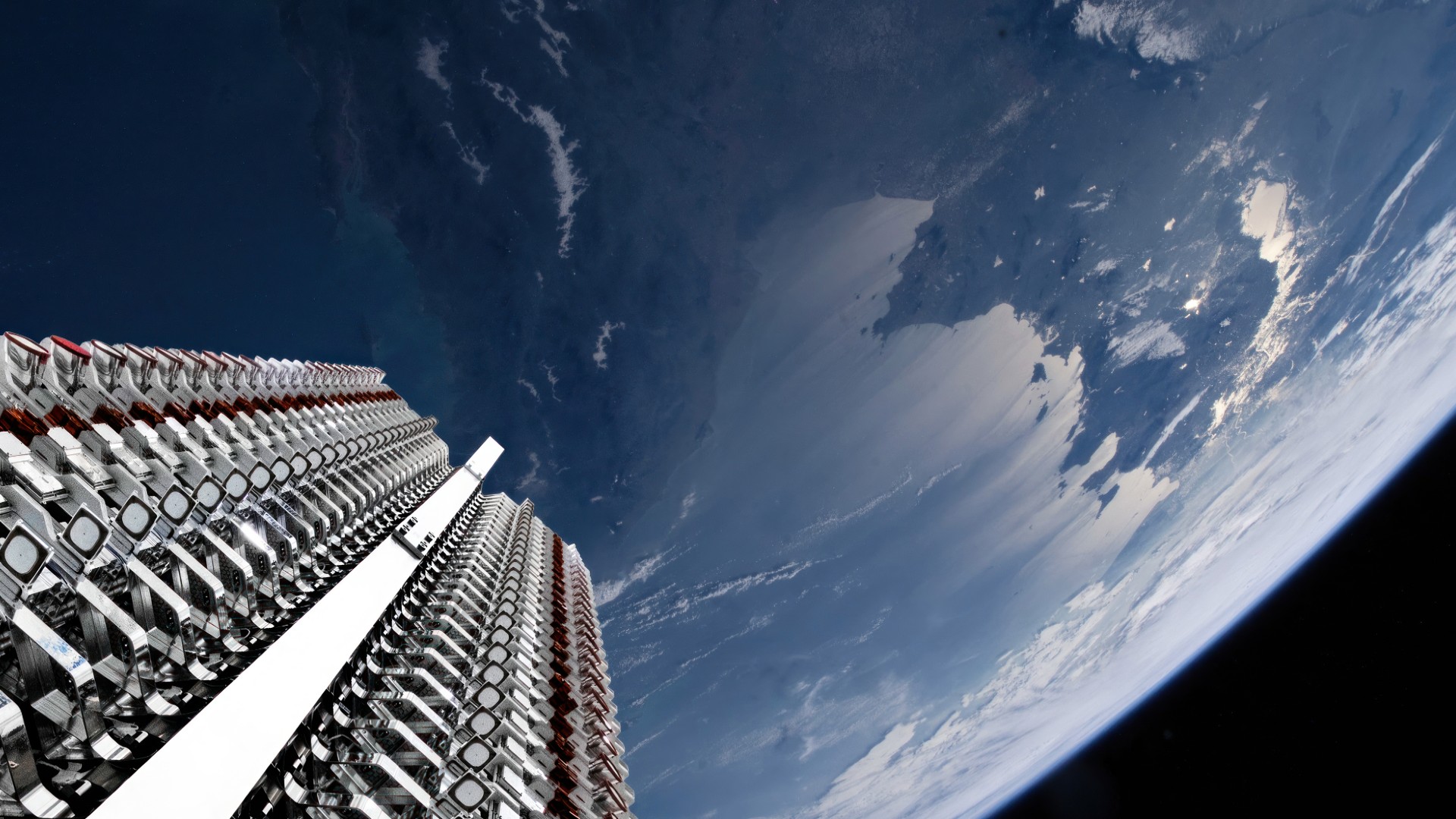NASA Gets Out of Satellite Servicing Business

When the space shuttle Atlantis lands ? planned for Saturday? it will cap off a mission to Hubble and mark the end of the servicing era.
The astronauts' fifth overhaul of the HubbleSpace Telescope was the last planned mission to repairthe telescope, or any satellite for that matter. And if NASA retires thespace shuttle fleet in 2010 as planned, the agency will lose the ability tovisit orbiting spacecraft and repair them in space.
"This is the last scheduled servicing mission of Hubblewith the space shuttle, and what I think it's demonstrated is the extremeutility of having people working in space and accomplishing things that aredifferent than what was expected," said astronaut John Grunsfeld, who hashelped fix Hubble on three different missions, from space Wednesday.
The first in-space fix by shuttle astronauts was in 1984,when spaceflyers repaired the sun-watching SolarMax satellite. In all, therehave been 10 space repair missions by shuttle crews, half of them to Hubble.
This kind of servicing has been a major source of pride forNASA ? most notably in 1993 when astronauts successfully installed aninstrument on Hubble to fix a flawed mirror that had been built into thetelescope. If the agency hadn't been able to do in-space repairs back then,Hubble's pictures might have remained blurry, and the observatory would havebeen an embarrassment instead of the champion that it is.
"To go out in a spacesuit and perform theextraordinarily intricate operations that we see, and do it successfully ? Ithink that is one of the most remarkable achievements that NASA has everdone," Hubble project scientist David Leckrone said at a briefing thisweek. "I think that is just one of the most valuable things that NASA haslearned how to do. And it just makes me want to cry to think that this is theend of it."
NASA's replacement spaceship, the Orion Crew Module(which will fly aboard Ares rockets), will not have the ability to rendezvouswith Hubble or other satellites to repair them. That vehicle is designed tocarry humans back to the moon and on to Mars, but has no built-in ability to dorepair work closer to home, and does not have a large cargo bay like theshuttle's to carry up new instruments and tools.
Breaking space news, the latest updates on rocket launches, skywatching events and more!
"I'm talking about the long-term loss of hard-woncapability and costly capability," Leckrone said. "If there's afuture for this agency it's got to be in an innovative direction likethat."
Leckrone criticized the design of Orion, which is part of theConstellation program, for not building in this capability.
Besides NASA, no other space agency has spacecraft designedfor in-space servicing. Once the space shuttles retire, the world will beincapable of repairing Hubble or other orbiting spacecraft, should they needit.
"There is no person out there, there is no leadershipout there, there is no vision out there to pick up the baton that we're about tohand off and carry it forward," Leckrone said. "And I think that'sjust a shame to abandon one of the most impressive, refined, sophisticatedcapabilities that this agency as a whole ? human side and robotic side ? has achieved."
Some might argue that NASA still has some servicing ability,though.
"Every single day on the International Space Station,some kind of maintenance is done with people, and we do spacewalks on theInternational Space Station as well," Grunsfeld said. "So NASA'smission to further these techniques I think will only increase with theInternational Space Station as it has on Hubble."
The Atlantis astronauts, the last humans ever to touch orsee Hubble up close, are slated to land early Saturday. Rain in Floridaprevented a Friday landing.
- New Video - Home Movies From Hubble - Telescope's Release
- New Video Show - Hubble's Final Shuttle Service Call
- Image Gallery - Hubble's Latest Views of the Universe: Part 1, Part 2

Clara Moskowitz is a science and space writer who joined the Space.com team in 2008 and served as Assistant Managing Editor from 2011 to 2013. Clara has a bachelor's degree in astronomy and physics from Wesleyan University, and a graduate certificate in science writing from the University of California, Santa Cruz. She covers everything from astronomy to human spaceflight and once aced a NASTAR suborbital spaceflight training program for space missions. Clara is currently Associate Editor of Scientific American. To see her latest project is, follow Clara on Twitter.
